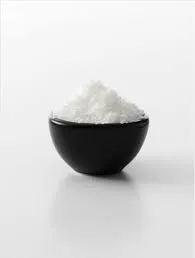- Afrikaans
- Albanian
- Amharic
- Arabic
- Armenian
- Azerbaijani
- Basque
- Belarusian
- Bengali
- Bosnian
- Bulgarian
- Catalan
- Cebuano
- Corsican
- Croatian
- Czech
- Danish
- Dutch
- English
- Esperanto
- Estonian
- Finnish
- French
- Frisian
- Galician
- Georgian
- German
- Greek
- Gujarati
- Haitian Creole
- hausa
- hawaiian
- Hebrew
- Hindi
- Miao
- Hungarian
- Icelandic
- igbo
- Indonesian
- irish
- Italian
- Japanese
- Javanese
- Kannada
- kazakh
- Khmer
- Rwandese
- Korean
- Kurdish
- Kyrgyz
- Lao
- Latin
- Latvian
- Lithuanian
- Luxembourgish
- Macedonian
- Malgashi
- Malay
- Malayalam
- Maltese
- Maori
- Marathi
- Mongolian
- Myanmar
- Nepali
- Norwegian
- Norwegian
- Occitan
- Pashto
- Persian
- Polish
- Portuguese
- Punjabi
- Romanian
- Russian
- Samoan
- Scottish Gaelic
- Serbian
- Sesotho
- Shona
- Sindhi
- Sinhala
- Slovak
- Slovenian
- Somali
- Spanish
- Sundanese
- Swahili
- Swedish
- Tagalog
- Tajik
- Tamil
- Tatar
- Telugu
- Thai
- Turkish
- Turkmen
- Ukrainian
- Urdu
- Uighur
- Uzbek
- Vietnamese
- Welsh
- Bantu
- Yiddish
- Yoruba
- Zulu
វិច្ឆិកា . 22, 2024 19:35 Back to list
tylosin injectable for chickens
Tylosin Injectable for Chickens An Overview
Tylosin is an antibacterial agent commonly used in veterinary medicine, especially in the poultry industry. This macrolide antibiotic is effective against a range of gram-positive bacteria and certain gram-negative bacteria, making it a valuable tool in the prevention and treatment of various bacterial infections in chickens. Administered via injection, tylosin provides a targeted approach to managing health issues in poultry, ensuring both bird welfare and productivity on the farm.
Mechanism of Action
Tylosin works by inhibiting bacterial protein synthesis, which ultimately leads to the halting of bacterial growth. This mechanism makes tylosin effective against pathogens responsible for disease conditions such as chronic respiratory disease and other infections. It is particularly beneficial for managing Mycoplasma infections, which are notoriously difficult to treat due to the lack of a cell wall in these bacteria. By disrupting vital processes within the bacteria, tylosin can significantly reduce the population of pathogenic organisms, allowing the chickens’ immune systems to recover effectively.
Indications for Use
Tylosin injectable is commonly used in poultry to treat diseases caused by susceptible bacteria. This includes respiratory infections and other conditions caused by Mycoplasma species. It may also be utilized to promote growth and improve feed efficiency, though its primary role remains in disease control. Farmers often turn to tylosin when they notice symptoms such as coughing, nasal discharge, or reduced feed intake, which are indicative of bacterial infections.
tylosin injectable for chickens

Administration and Dosage
The injectable form of tylosin is preferred in many cases due to its rapid action and direct delivery into the bloodstream. Veterinarians often prescribe the antibiotic based on the specific condition being treated, the severity of the infection, and the overall health of the chickens. Dosage typically follows guidelines based on the weight of the birds, and it is crucial to adhere to these recommendations to avoid potential toxicity or resistance develop.
Safety and Resistance
One of the most pressing concerns in veterinary medicine today is antibiotic resistance. Tylosin, like other antibiotics, has the potential to contribute to this global issue if not used responsibly. Farmers and veterinarians must practice judicious use, ensuring that tylosin is only administered when necessary and that proper withdrawal times are observed before slaughter. This helps to mitigate the risk of resistant strains of bacteria emerging and passing onto humans through the food chain.
Conclusion
Tylosin injectable for chickens is a powerful friend to poultry farmers seeking to maintain their flocks' health. By effectively treating bacterial infections and contributing to overall bird welfare, tylosin plays a crucial role in the success of poultry production. However, responsible use is essential to ensure its efficacy and to safeguard against the looming threat of antibiotic resistance. As poultry farming continues to evolve, the use of tylosin, monitored and guided by veterinary expertise, will remain a vital component in the arsenal against poultry diseases. With ongoing research and responsible management strategies, tylosin can help ensure a healthier future for both chickens and the farms that raise them.
-
Guide to Oxytetracycline Injection
NewsMar.27,2025
-
Guide to Colistin Sulphate
NewsMar.27,2025
-
Gentamicin Sulfate: Uses, Price, And Key Information
NewsMar.27,2025
-
Enrofloxacin Injection: Uses, Price, And Supplier Information
NewsMar.27,2025
-
Dexamethasone Sodium Phosphate Injection: Uses, Price, And Key Information
NewsMar.27,2025
-
Albendazole Tablet: Uses, Dosage, Cost, And Key Information
NewsMar.27,2025













